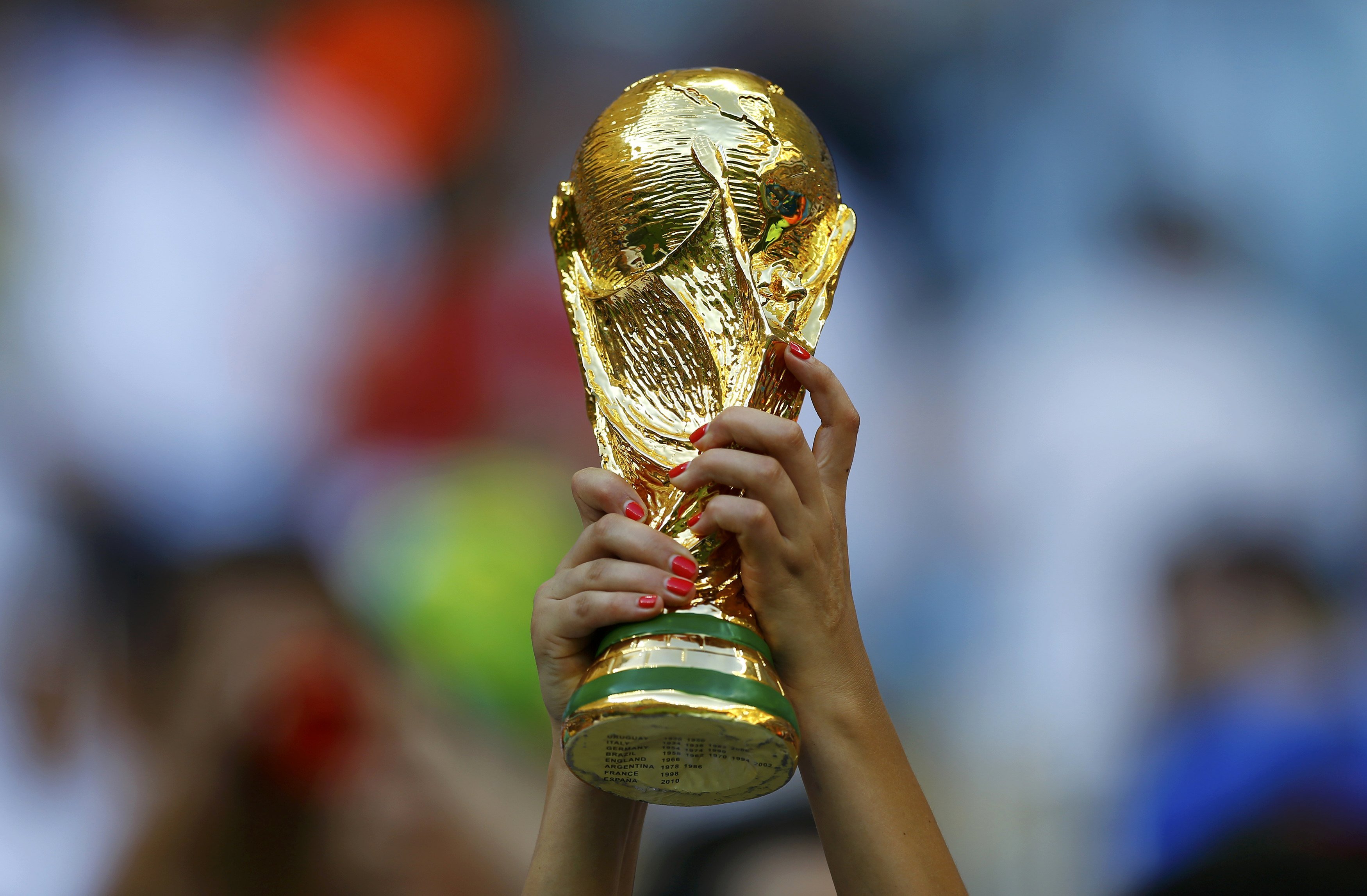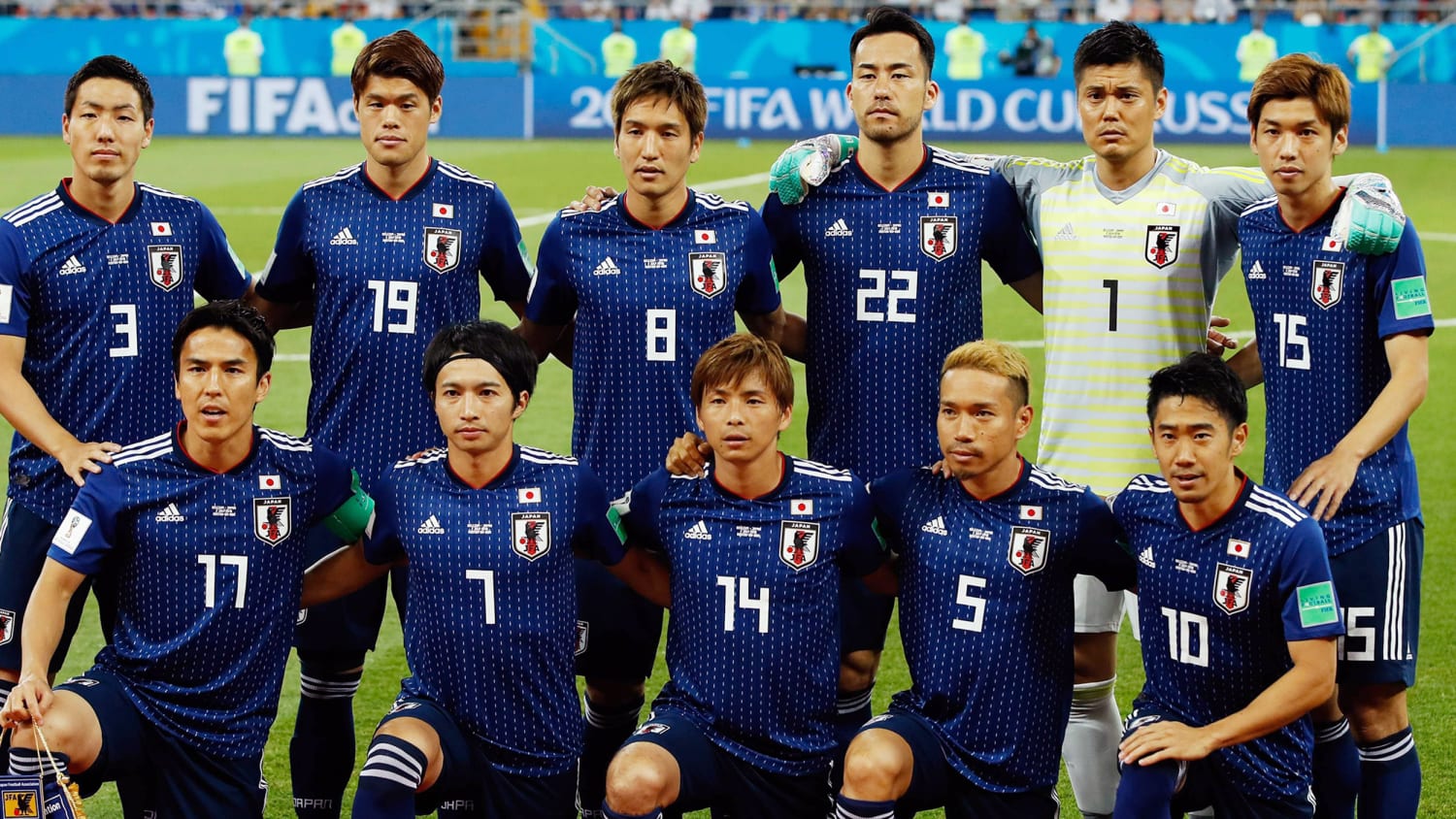Can we ever think about an Asian country to step up winning a World Cup?
Potential teams
"The clubs don't want to give [their players] what they deserve. But if Saudi Arabia wants to have good players in the future then they have to let them go."
Saudi Arabia still fails to put it out. With a large budget, it can also hire managers and sign contracts with foreign players. But telling players to learn elsewhere is forbidden. Rather, the government only sponsors their movements only. For instance, nine Saudi players were sent to play in La Liga on loan by their clubs, the Saudi government paid all of their salaries before Russia 2018.
Unfortunately, as long as the other Asian countries continue to lack football frameworks, Saudi Arabia will be likely to continue holding the edge without looking on how to improve in the long run.
Iran is the final team, also one of Asia's big five. But it is also questionable.
Questionable because Iran has football talents and sometimes appears in the World Cup. The Iranians had five World Cups, first in 1978 and recently in 2018. They also won three Asian Cup in a row, a record, not even Saudi Arabia or Japan could do the same today. But "questionable" is more about the totalitarian regime of Iran.
This is a sad one. In 1979, Iran entered a revolution only to replace a secular dictatorship with an Islamist regime. But because most Asian countries have their football development below standard of even North America and Eastern Europe alone, Iran progressed into the next four World Cups without issue in 1998, 2006, 2014 and 2018. Yet once they played in World Cup, Iran's fragility unravelled when the national team could only beat two opponents, the United States in 1998 and Morocco in 2018. Against more organised opponents like Mexico, Spain, Portugal, Argentina, Serbia and Germany, Iran could not win. And even when it goes to Asian Cup, Iran failed to reach the final since the last win in 1976, all finished third place. This has to be shocking given the wealth and natural resources of Iran. By comparison, Japan, which only emerged in 1990s, quickly displaced Iran and has almost knocked Belgium out for example.
The biggest problem of Iranian football has always been religion. Because the country is governed by a string of uneducated jurists led by a corrupt Supreme Leader since 1979, Iran has been crushed in and out by the system. Its players, no matter their talents, cannot demonstrate it independently and has to be subjected to the regime's censorship. Players going abroad are also not free either when Iranian government frequently dispatches agents. By politicising football, Iran misses out on how to galvanise to successes.
Thus, even when Iran has the potentials to breakthrough, but as long as the Islamic government remains, there is no confirmation about Iran becoming a contender.
Other teams?
That's an odd one. These teams are unlikely to be seen as world champions, leave alone its struggle for prominence. But some names that can be coined as possible dark horses are plenty.
Iraq can be the biggest oddball. The country has a long history of producing some of Asia's finest talents. Think Hussein Saeed, Ahmed Radhi, Emmanuel Ammo Baba, Basil Gorgis, Younis Mahmoud, Nashat Akram, Mahdi Karim, Mohammed Gassid, Noor Sabri, Hawar Muhammad, etc. But Iraq for somehow is unable to apprehend the richness. They only have one World Cup to remember for, 1986. In Asian Cup, they only won one, back in 2007. Despite constant youth teams' achievements, Iraq continues to languish behind some of the best teams of Asia. If Iraq is stabilised, a very powerful and threatening Iraqi side can be a serious problem to Japan and South Korea.
Uzbekistan is a case of being an unfortunate choker. It used to be one of the three major football factories within the former Soviet Union, the two others were Ukraine and Russia. And Uzbekistan proved why it was one of the three football machines of USSR, shortly after gaining independence in 1991, it quickly disposed the rest of Asia to win the 1994 Asian Games at the surprise of many even with little budget. Uzbekistan also qualifies for every Asian Cup since independence, first in 1996 where they stunned Asia by beating China. But they have never come to World Cup, only close enough to do so, always in the final stage but slip out. The country still produces talents and maintains as a powerhouse in Central Asia and one of Asia's most paranoid, but only a long process of development may help the country. With Karimov's death, Uzbekistan is opening up greater to the world, but how far would it go, depend.
Qatar is a rising name. It has been awarded as host of the 2022 World Cup and Qatar is pouring billions to develop a national team. Previously, it qualified for Asian Cup, a lot, but fared miserably in World Cup qualification, usually in the final round. Qatar is embroiled in controversies by the naturalisation of players, many are from South America, Arab World, Sub-Saharan Africa and even in Iberia. But the 2019 Asian Cup saw a massive revolution, when Qatar, though still had men coming from Tanzania, Somalia, Algeria, Portugal, Egypt and Sudan playing, won their first Asian Cup trophy. But with the World Cup coming close, Qatar is still finding ingredients to perfect the national team to head for their home in 2022 edition - also will be Qatar's first.
Thailand is also a name that should be paid attention to. Having one of the strongest football leagues in Asia and played in some Asian Cup, Thailand also gathers respect for being the only team from Southeast Asia to compete fairly with the rest of Asia's big, though Thailand has not gotten a single win in the final round of World Cup qualification, first appeared in 2002 edition before returning in 2018 edition. Thailand has also had a reputation of slipping in important moments, thus costing them from getting further. But now, Thailand has built what would be one of its really first golden generation that can compete on Asian stage and the seeds of Thai successes can also be reimplemented if they can keep building up.
Kuwait can be coined as an unfortunate case of how it declined. Used to be Asia's big, it won one Asian Cup at home in 1980 and qualified for 1982 World Cup, the only one to date. Since then, Kuwait maintained being competitive, even came close to qualify for 2006 World Cup had not for Saudi Arabia, South Korea and Uzbekistan standing against. But from this moment, instant fighting and FIFA's sanctions crippled Kuwait's football, and the country is still struggling to recover its glorious past. It's still powerful enough, though.
Bahrain is worth paying attention to. Only one million inhabitants on this small island, yet Bahrain has produced a formidable squad. Bahrain won fourth place back in Asian Cup 2004 and almost named itself into the World Cup twice, only to be thwarted by Trinidad and Tobago and New Zealand. After failing to qualify for South Africa, Bahrain suffered a crisis before it made a jump in 2019 to end the crisis and move closer to the country's second golden generation, winning both the 2019 Gulf Cup and West Asian Championship. In the 2022 World Cup qualification, Bahrain is also having a near-perfect record, including the famous 1-0 victory over Iran, the first in 10 years. It's too early to say Bahrain can go to World Cup, the performance is giving a thumb up for Bahrain.
China is a case that we can't understand about. It was very good in the past and even for one case, Brazilian legend Pelé viewed China as a potential World Cup champion when it first qualified in 2002. It also came close to win Asian Cup twice. But then, it just declined and since 2010s, while it remains a bugaboo, it has ceased from being more competitive and now is in the struggling situation to regain prominence due to money wasting. China can still qualify for a second World Cup, but to wait like Bolivia is a something unbelievable truth.
Syria is promising, yet uncertain. The national team of Syria almost reached 2018 World Cup in Russia, but Australia reigned over before finally progressed over Honduras. Two years after the historic encounter against Australia, it slipped out of Asian Cup with one point (with Australia killing off their dream). The Syrian side is producing a generation that can be dubbed as Syria's first golden age, with Mardik Mardikian, Omar Al Somah and Omar Khribin leading the line. Yet even having talismans doesn't make it safer because of the very dismal form in needed games or in major competitions. Currently, they lead group A of the Asian section of Qatar 2022, but there is no guarantee for Syria to make a repeat.
North Korea is a very difficult issue because of the closeness of the Hermit Kingdom. It does have a proud World Cup record, reaching the last eight in the maiden debut of 1966 England before returning to World Cup for South Africa 2010, this time smashed by Brazil, Portugal and Ivory Coast. In the Asian Cup, the North Koreans won fourth back in 1980, also the country's debut, falling to arch-rival South Korea in the decisive semi-final game. Since then, it also deteriorated in performance, losing most of its games in its subsequent participation. Information about players from the country is also severely limited because it is also a state secret, only some players like goalie Ri Myong-guk, "North Korea's Rooney" Jong Tae-se, or recent Austria export Pak Kwang-ryong. In this case, if North Korea decides to open up the country with the world to improve the team's status, they'll be a difficult force to reckon with. Sadly, the political climate won't side with us as long as North Korea continues to test nuclear weapons.
United Arab Emirates has qualified for only one World Cup to date, in 1990 where it was held in Italy, losing all three. But just only that development also built up the confidence and gave rise to the UAE's golden age of football, where the state diverted more funds to build a strong national team. As a result, the UAE almost won the 1996 Asian Cup at home, falling to neighbour and rival Saudi Arabia on penalty shootout, winning its first-ever FIFA match in the 1997 Confederations Cup (known as King Fahd Cup at the time). It is now acknowledged as one of Asia's stubborn. Yet to progress requires a prolonged platform, the UAE seems to be a bit amateur.
Jordan is hard to be overlooked. The Middle Eastern side had been irrelevant but since their debut in 2004 Asian Cup, where Jordan stunned expectation by holding draws to both South Korea and Japan, the Chivalrous has made a name for themselves, constantly proving why they are the kryptonite of any big Asian teams. This includes Australia, who fell to Jordan in 2019 Asian Cup; Iran who suffered a shock home loss to the same team back in 2006 World Cup qualification in Asia; or Saudi Arabia beaten in the 2011 Asian Cup; even Japan could not escape defeat to the Jordanians back in 2014 World Cup qualifiers. Jordan has almost qualified for a World Cup, also back in 2014 Brazil, but was sadly taken down by a formidable Uruguayan side having Stuani, Suárez and Cavani. The positive growth of Jordanian football has been a serious challenge that can take other national teams to be very careful when dealing with.
So yes, it is how I perceive these national teams with the highest chance, and teams with the potential to create difficulties. Though it is still unfair to compare all. But yeah, why not?





Comments
Post a Comment